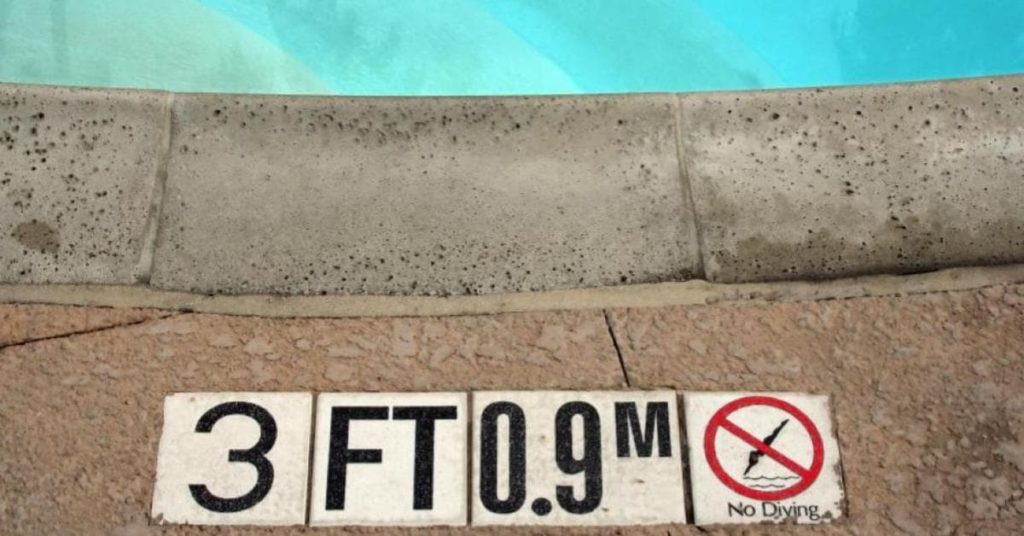In the midst of all the laughter, splashes, and friendly competition, it’s easy to overlook the importance of safety during pool games.
However, pool safety should always be a top priority when engaging in any water-related activity. Here are some key considerations to ensure everyone has a fun and safe time in the pool.
Understanding Basic Pool Safety
It is never too early to teach kids how to act and behave around a pool area. These lessons can help prevent accidents and other emergencies.
Simple rules and guidelines should be followed. For example, there should be no running outside of the pool area. Decks, patios, and even grass are very slippery when wet and kids can very easily fall on the deck or even into the pool if they are not careful.
Also, never swim alone and always have a friend with you in case of emergencies.
Know Your Swimmers
Understanding the swimming abilities of all participants is very important. Those with limited swimming skills should stay in the shallow end or use flotation devices at all times.
Young children, even those who can swim, should always be under close supervision. Kids should never be left alone in a swimming environment for any reason.
Game Rules and Conduct When Playing
Establishing clear, safe rules for a game is an essential step toward a safe playing experience. Each swimming pool game and activity on Pool Playtime has basic rules to follow.
Rules such as no running on the pool deck, no rough play, and taking turns can help prevent accidents.
Additionally, fostering a sense of respect and sportsmanship among players can help avoid aggressive behaviors that could lead to injuries. It’s crucial to remind everyone that the primary goal is to have fun, not to win at all costs.
The Dangers of Diving
Jumping into a pool and performing cool diving board tricks can be a lot of fun! After all, this is what having a pool should be about.
There are games and activities that require diving and jumping into the pool. It is highly recommended to clearly mark safe diving areas in your pool and ensure they meet the minimum depth requirements. Typically, the water depth should be at least 7.5″ for diving. Diving board manufacturers may have their own requirements as well.

Understanding the risks associated with diving, such as head, neck, and spinal injuries that can result in permanent disability, is important for overall safety. There should never be jumping or diving into shallow ends or above-ground pools.
Ensuring diving boards and platforms are properly installed, maintained, and used according to the manufacturer’s guidelines can minimize the risk of accidents.
Pool Environment
The actual pool itself and the surrounding area should be healthy and safe to swim in. It is very important to make sure routine pool maintenance is done to ensure a safe swimming experience.
- Testing Pool Water: Testing the pool’s water is crucial to ensuring the water is actually safe to swim in. A pool with algae or other organic contaminants in the water is a health hazard. Every pool homeowner should have a proper pool testing kit.
- Pool Maintenance: Routine cleaning and brushing of the pool should be done to get all of the debris out of the water. Also, inspecting the deck area for broken pieces and the pool for loose tiles, plaster, or vinyl should also be part of a pool maintenance checklist.
- Pool Lighting: Adequate lighting around the pool area can improve visibility and safety during a nighttime swim.
Also, fences with self-closing gates can prevent unauthorized access when the pool is not in use. Not only is this added safety insurance but most towns across the United States require some type of fence or barrier by law to surround the pool.
Equipment Safety
Pool toys and accessories can greatly enhance the fun of pool games, but they must be used correctly and responsibly. Misuse can lead to accidents so it’s important to instruct all players on the correct use of any equipment involved in a game.
Flotation devices can be particularly helpful for less experienced swimmers but remember that they are not a substitute for supervision and actual swimming skills.
Never leave toys or floats in the pool when they are not in use. These can be inviting to some kids that are still unable to swim who might jump in or try to reach them from the side.
Supervision is a Must
Having a designated watcher or lifeguard is a key safety measure and should be required for any game or activity being played. This watcher should be responsible for enforcing safety rules and ideally trained in first aid and CPR.
As a matter of fact, every qualified adult should be CPR-certified. There are multiple organizations, including the American Heart Association and American Red Cross, that offer CPR and first aid classes.
A fully-stocked first aid kit should be readily available in the household in case of an injury that might cause gashes and bruises.
It is also recommended to have emergency equipment like a life ring or shepherd’s hook readily available near the pool. While pool noodles and other floats can work, they might be too bulky or too light to hold much weight.
You never know when an emergency will happen, whether inside or outside of a pool. So being prepared is key.
Having Fun and Being Safe Go Hand-in-Hand
Maintaining safety during pool games is just as important as the games themselves.
By following some simple guidelines and rules, you can help ensure a safe and enjoyable experience for all.
